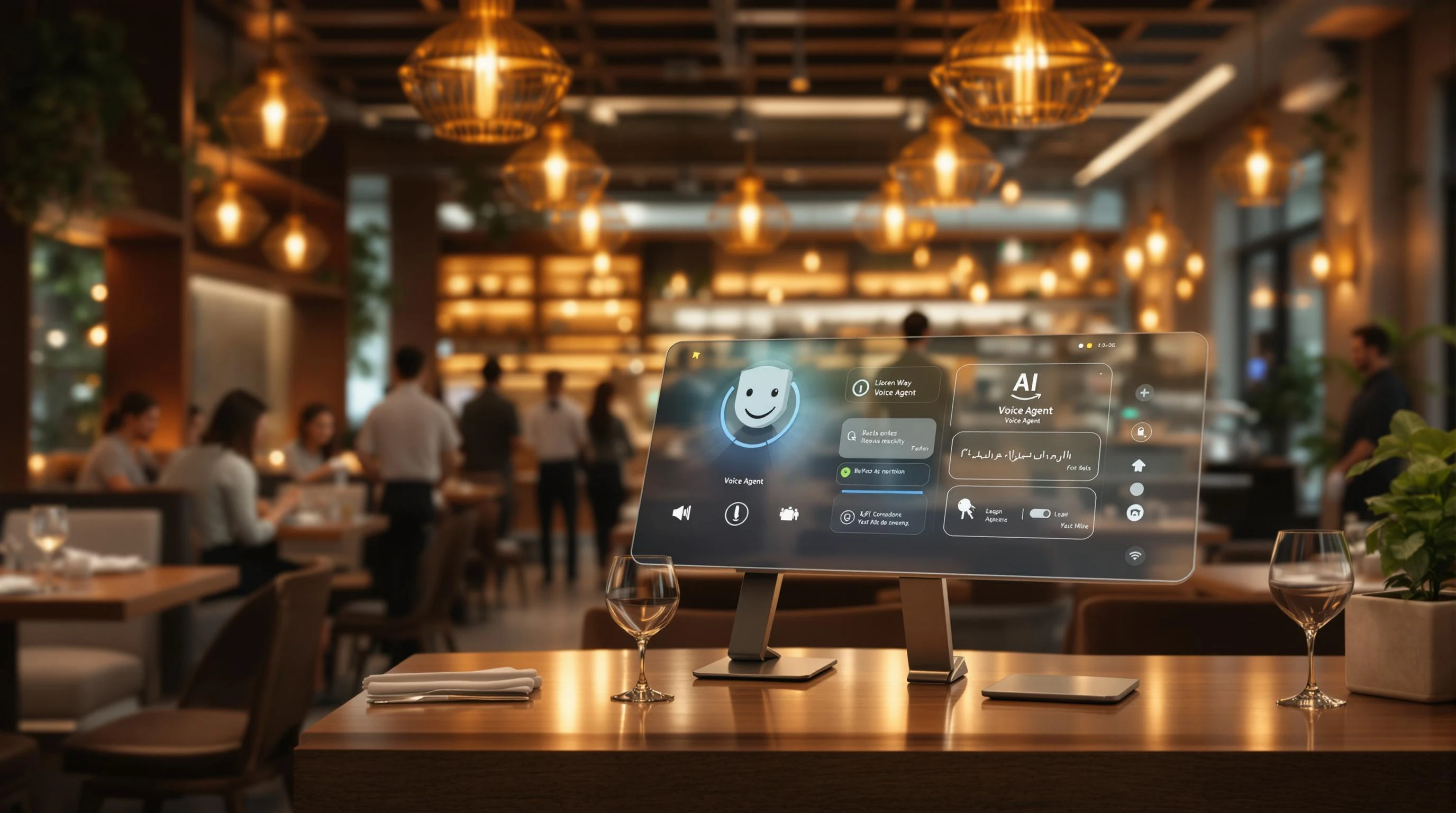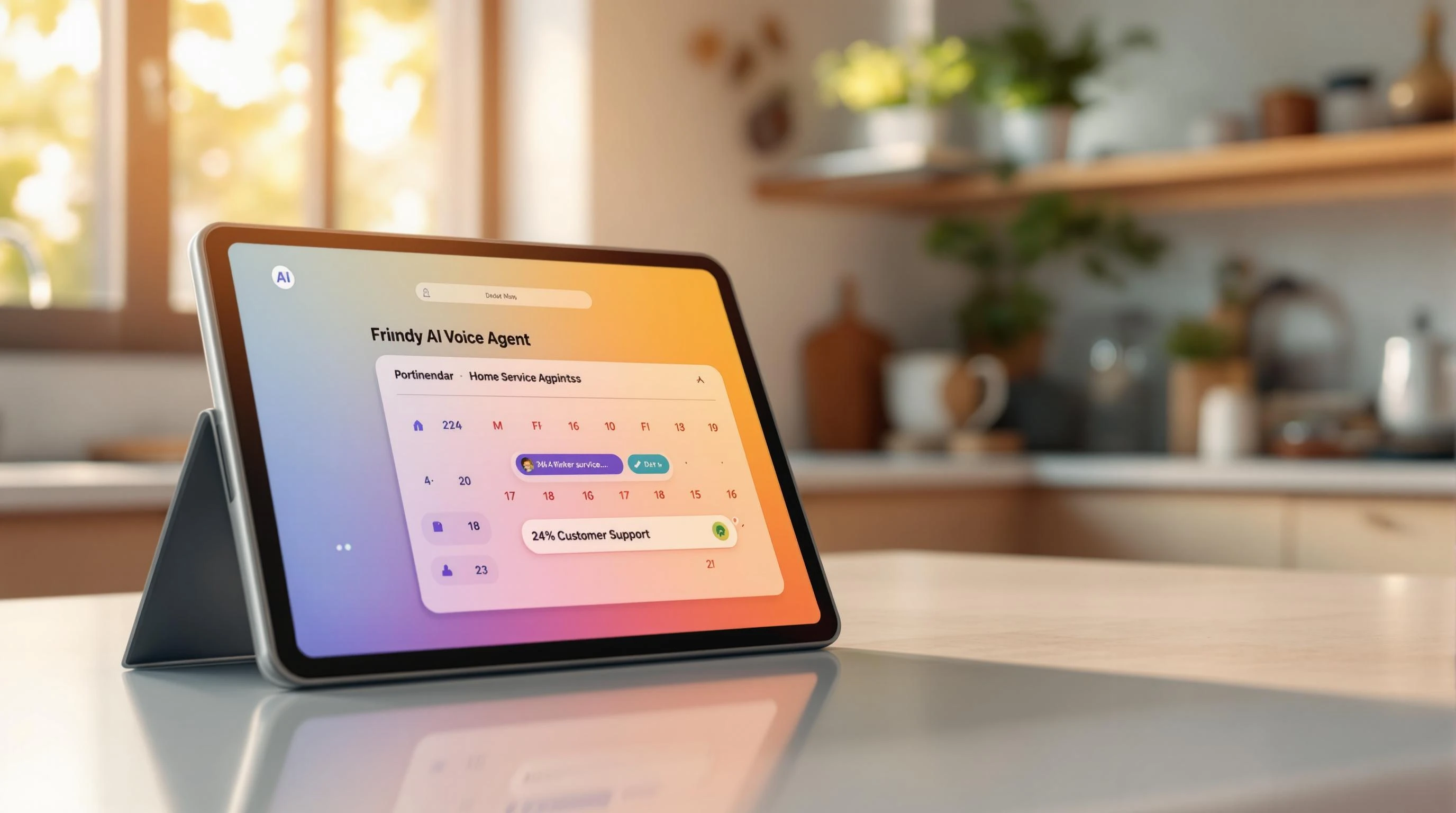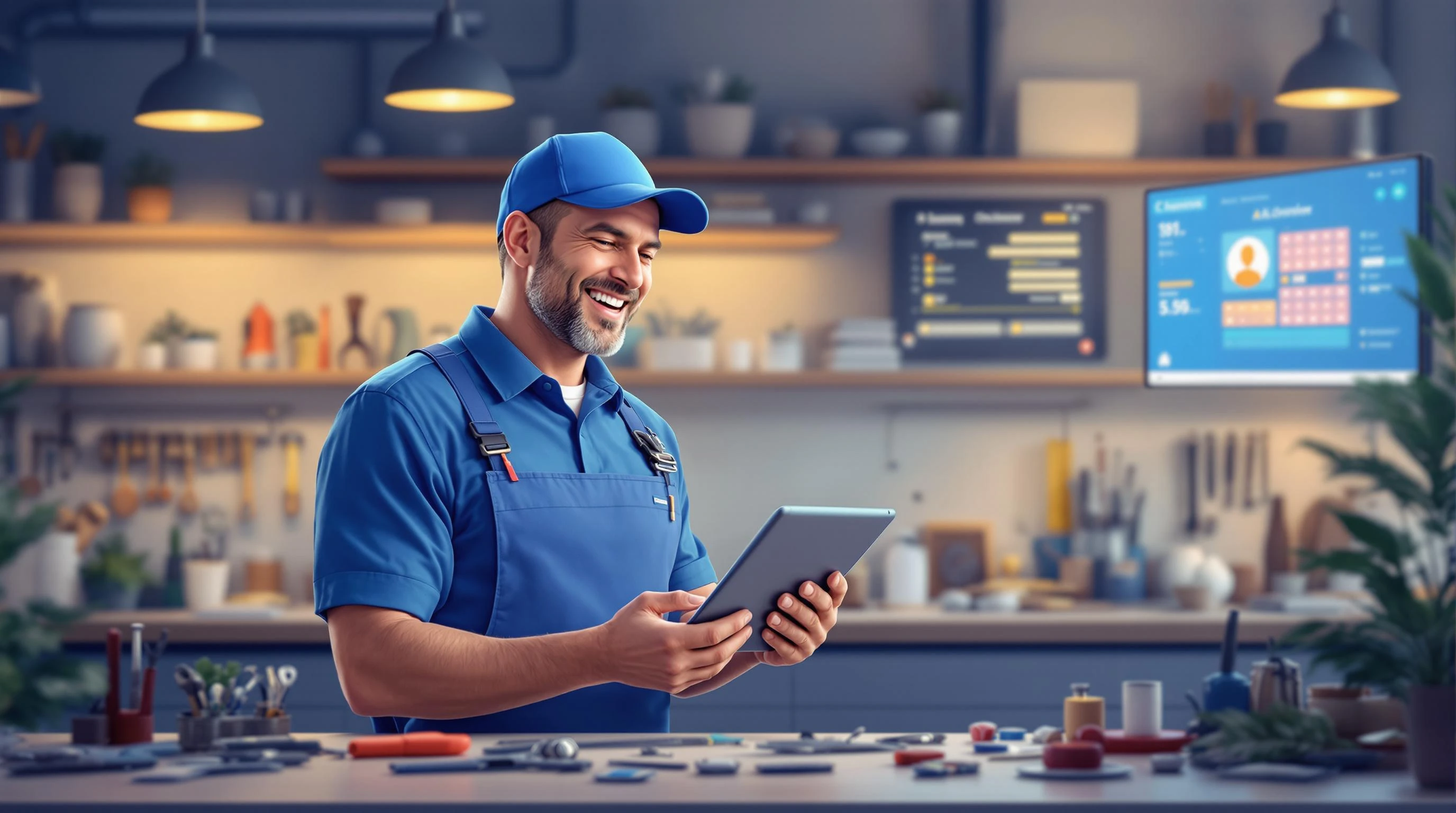
Jan 16, 2025
6 min read
AI voice agents are reshaping restaurants by improving efficiency, cutting costs, and enhancing customer experiences. Here’s how they’re making an impact:
24/7 Reservations: Customers can book tables anytime, boosting table turnover by 24%.
Personalized Suggestions: Tailored menu recommendations based on preferences and past orders.
Faster Order-Taking: Handles complex requests with 94% satisfaction from fast-food leaders.
Language Support: Communicates in 32+ languages, breaking barriers for diverse customers.
Inventory Management: Tracks stock in real-time, reducing waste and errors.
Cost Savings: Automates tasks, lowering labor and operational expenses.
Contactless Service: Ensures safety and accessibility for all diners.
Competitive Edge: Early adopters streamline operations and attract tech-savvy customers.
AI voice technology is helping restaurants adapt to modern demands, offering smoother operations and better service. Dive into the article for detailed examples and actionable insights.
1. Easy Reservations with AI Voice Agents
AI voice agents are changing the way restaurants handle reservations, offering a simple, reliable solution that works 24/7. With just voice commands, customers can book a table anytime. For example, Alpine Restaurant experienced a 24% increase in table turnover after adopting this technology, highlighting its impact on efficiency [3].
These systems are especially effective at managing detailed requests using natural language understanding. For instance, SoundHound's AI agents can handle specific needs like dietary preferences [2], making the booking process straightforward and stress-free for customers.
Here are some standout features of AI voice agents:
By automating reservations, restaurants can let their staff focus on delivering great in-person service. This not only improves workflow but also enhances the customer experience. Restaurants using AI voice agents have reported a 65% customer engagement rate [3], showing that diners are embracing the technology.
But it doesn't stop at reservations - AI voice agents are also reshaping customer interactions with personalized recommendations.
2. Personalized Customer Suggestions
AI voice agents are changing the way restaurants cater to individual preferences by using customer data and interaction history to create more tailored dining experiences.
SoundHound's AI technology is a great example of this. It uses customer data to offer suggestions that match individual tastes and dietary needs. As Keyvan Mohajer, CEO of SoundHound, puts it:
"AI voice assistants can leverage customer data and preferences to provide tailored suggestions, aligning with individual tastes and dietary needs" [2].
Here’s how these personalization features benefit both customers and restaurants:
At Alpine Restaurant, owner Jane Dickinson introduced an AI voice agent system that took into account dietary needs and past orders, significantly improving the dining experience [3]. OpenMic Voice AI Agents also showcase how these systems handle complex preferences, even in digital interactions [3].
For example, these AI systems can easily accommodate gluten-free requests, allergies, and other dietary requirements [5]. This is especially relevant as over 40% of consumers already use voice assistants [5]. By offering personalized dining options, restaurants can boost customer satisfaction and encourage repeat visits, building long-term loyalty.
And it doesn’t stop there - AI voice agents also make the ordering process quicker and more efficient, adding even more value for both diners and businesses.
3. Quick Order-Taking with AI
AI voice agents are changing how restaurants handle orders, making the process faster and more accurate. Scott Scherer, CIO of Jersey Mike's, highlights this shift:
"AI is becoming an important part of supporting restaurant staff" [2].
At Jersey Mike's, AI is used for phone and drive-thru orders, showing how this technology improves operations. It simplifies the ordering process, handles special requests with ease, and ensures accuracy - even during the busiest times.
Here’s what the data shows:
The results speak for themselves: 94% of fast-food leaders say AI voice assistants improve customer satisfaction [7]. These systems are especially good at handling detailed requests, like dietary preferences, without slowing down [3][5].
AI voice agents also break down language barriers, making restaurants more accessible to people from different backgrounds. This technology isn’t just quick - it’s helping more people feel welcome.
4. Language Support for Diverse Customers
AI voice agents are helping restaurants overcome language barriers, making it easier for customers from different backgrounds to enjoy their dining experience. For example, WePickUpThePhone's AI system offers over 200 voices in 32 languages, allowing restaurants to communicate effectively with a broad range of customers.
This technology does more than just translate words. It recognizes regional dialects and cultural nuances, enabling a more personalized and comfortable interaction for diners.
One standout feature is the ability to interpret accents and regional speech patterns accurately - an essential tool for restaurants catering to tourists or international visitors [6].
To ensure success, restaurants should:
Train AI systems with diverse language data, including regional accents, for better accuracy.
Continuously update the system to stay aligned with cultural and linguistic changes.
This multilingual functionality not only boosts customer satisfaction but also simplifies operations, helping restaurants provide faster and more reliable service.
5. Efficient Inventory Management with AI
Voice-enabled AI tools are revolutionizing how restaurants manage their inventory, replacing manual tasks with real-time updates. By syncing with point-of-sale (POS) systems, these solutions can track stock levels, monitor expiration dates, and analyze usage patterns, reducing errors and keeping operations running smoothly.
These AI voice systems don't just improve customer-facing tasks - they also streamline behind-the-scenes operations. Staff can quickly check stock levels or expiration dates by simply asking, while the AI uses sales data to predict future demand.
These tools also help cut down on waste by monitoring ingredient usage and shelf life. They can even prepare for seasonal demand by analyzing past sales data alongside external factors like holidays or weather. This ensures restaurants always have essential ingredients on hand, avoiding delays or menu shortages that could impact the customer experience.
To make the most of these systems, restaurants should connect AI tools with their POS systems, train staff to use voice commands effectively, and keep an eye on key metrics like stockout rates. Adopting AI for inventory management not only boosts day-to-day efficiency but also supports smarter, data-informed decisions for the future.
6. Cost Savings through AI Efficiency
AI voice agents are helping restaurants cut costs by simplifying operations and reducing labor demands. Take Jersey Mike's, for example - they’ve used these systems to handle phone orders efficiently, easing staff workload and lowering operational expenses [2].
Here’s a breakdown of how AI voice technology impacts various cost areas:
These systems go beyond simple automation. By integrating directly with existing POS systems, they reduce order mistakes and cut down on food waste. This improved accuracy boosts overall efficiency, positively affecting profits [1].
The results speak for themselves. Fazoli's, for example, teamed up with ConverseNow to maintain smooth operations and even grow revenue, all while operating with fewer staff members [4]. This highlights how AI tools can improve both efficiency and revenue at the same time.
The savings from these technologies can be reinvested in areas like enhancing customer experiences or expanding the business. Plus, AI voice agents are changing the way restaurants deliver service, offering contactless and accessible solutions that align with today’s customer expectations.
7. Contactless and Accessible Service
AI voice agents are changing the way restaurants operate by improving both safety and accessibility. These systems allow customers to interact without physical contact while catering to a wide range of needs, making dining more inclusive.
Keyvan Mohajer, CEO and co-founder of SoundHound AI, highlights this evolution:
"More than ever, restaurant customers are ordering for pick-up and delivery, and to keep them coming back businesses need to provide a slick, hassle-free experience" [2].
Here’s how AI voice agents are improving key areas of restaurant service:
Modern AI voice systems offer features like:
Natural language processing for smooth, intuitive conversations
Direct POS integration to ensure accurate orders
Automated support for customers with different abilities
Reliable, consistent service every time
These tools help restaurants create a welcoming atmosphere for all while keeping service efficient and safe. By adopting voice AI, restaurants can meet today’s demand for convenience and inclusivity, all while maintaining top-tier service.
In addition to improving accessibility and safety, this technology gives restaurants a competitive edge in a fast-moving industry.
8. Competitive Advantage with Early AI Use
Businesses adopting AI voice agents early are gaining an edge by streamlining operations, improving customer service, and standing out as forward-thinking leaders. Take Alpine Restaurant, for example - they’ve achieved measurable results using OpenMic's AI technology [3].
Here’s how this advantage plays out across different areas:
These early adopters are not just optimizing operations but also gaining insights into customer behavior. This data can fuel targeted marketing and loyalty programs, giving them an additional edge [5].
To get the most out of AI voice agents, integrating them with POS systems is key [1][5]. This setup ensures smoother processes and lays the groundwork for long-term success in a tech-driven market. Some specific perks include:
Gaining actionable customer data for smarter decisions
Quickly adjusting to shifting market trends
Establishing leadership in service innovation
Meeting rising customer expectations with ease
Conclusion
AI voice agents are making a noticeable difference in the restaurant industry, improving operations and customer experiences. For instance, engagement rates have reached 65%, while table turnover has increased by 24%, showcasing how this technology is driving real results [3]. These trends highlight how AI is changing the way restaurants operate and meet customer expectations.
Jersey Mike's offers a clear example of this shift. By using AI voice agents to handle phone orders, they’ve eased staff workloads and reduced costs [2]. Scott Scherer, CIO of Jersey Mike's Franchise Systems Inc., puts it best:
"AI is becoming an important part of supporting restaurant staff" [2].
These systems not only simplify operations but also enhance customer interactions, helping restaurants stand out in a competitive market. To get the most out of AI, restaurant owners should focus on integrating it with their current systems and ensuring staff are well-trained to use it effectively.
Restaurants that embrace AI voice agents early on are better equipped to succeed in a fast-paced industry. By connecting AI to POS systems and prioritizing staff training, businesses can ensure they offer smooth, efficient customer experiences [3][5]. As experts in the field emphasize, delivering seamless interactions is now a key factor for success in the restaurant world.






